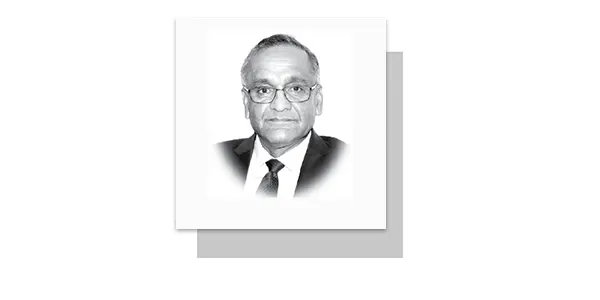FLAWED on a million accounts, elections for the Illegally-occupied Jammu & Kashmir (IIOJ&K) Legislative Assembly have been held, results announced on 8 October and leader of the Jammu Kashmir National Conference (JKNC) Omar Abdullah sworn in as the Chief Minister. Elections were held for a total of legislative 90 seats. Major players were the Jammu & Kashmir National Conference (JKNC) in alliance with Indian National Congress and Bharatiya Janata Party (BJP). JKNC Alliance was opposed to Indian decision to revoke Article 370 of its Constitution and its opponent BJP, the architect of that decision. Illegal revocation of the Article 370 in August 2019 had stripped the Occupied Jammu Kashmir of its special autonomous status.
Being the first legislative elections after the revocation of Article 370, international media and analysts were viewing these elections as a referendum on revocation. The New York Times wrote, “It seemed clear that Kashmiris would rather vote for anyone, even a local party in alliance with mainstream Indian politicians than the Hindu-first leaders who revoked their special status in 2019”. Al Jazeera came up with the headline, “Party opposed to India’s stripping of Kashmir’s autonomy wins election”.
Yes, that is the way many analysts viewed the elections and interpreted its results. Personally, I fail to understand how someone could even expect the Kashmiri people to put their stamp of approval on BJP’s oppressive policies and systematic violation of their human, political and social rights. Expecting Kashmiris to support BJP would be like expecting the oppressed to side with their oppressor. And then, when did BJP ever aim to win the hearts and minds of Muslims, let alone Kashmiris. Its ideology is exactly the opposite. Historically, elections [read sham elections] in Occupied Kashmir have always been grounded in their peculiar context. Recent elections had an exceptionally complicated backdrop.
These elections have been held after a gap of ten years since the last elections were held in 2014. The intervening decade – the BJP decade – was an eventful one. Kashmiri Freedom Movement started to gain extraordinary momentum soon after 2014 elections, gathering a new momentum and spreading across Kashmir after the martyrdom of Burhan Wani in July 2016. Indian response to this struggle was crushing. Security forces broke its own gruesome records of high handedness with continued use of pallet guns, disappearances and killings that invited sharp earning a sharp criticism from international human rights watchdogs. Things further worsened with Uri and Pulwama attacks.
In August 2019, the Indian Government illegally and unilaterally revoked Article 370 of its Constitution that had given an autonomous status to the occupied territory. This decision was coupled by all measures of oppression: months’ long uninterrupted curfew, internet blockade, lockdown, arrest of all political leadership and deployment of hundreds of thousands of additional troops in this already most densely militarized zone in the world. Thousands of youngsters were arrested and put in far off prisons, night raids, indiscriminate shootings and rape. Use of rape as a tool of political suppression has become a hallmark of Indian policy. These measures put Kashmiris’ sentiment diametrically at odds against BJP’s policies. That is what has been reflected in the recent election results.
These elections had been held after an elaborate homework by the Modi regime to win a victory for BJP. Objective was to claim that Kashmiris had endorsed August 2019 decision. After the revocation of Article 370, a number of steps had been taken to dilute the Muslim majority in Jammu Kashmir. Change in the domicile rules had allowed many non-Kashmiris to settle in Jammu Kashmir and change demographic chemistry. Delimitation of electoral boundaries had further disenfranchised the Muslim population in Jammu Kashmir.
In March 2020, Delimitation Commission was formed for readjustment of legislative seats. The Commission added six additional seats to the Hindu-dominated Jammu Division and one seat to Muslim-dominated Kashmir Division. With this, Hindu majority Jammu with 43% population was allocated 47% seats, while Muslim majority Kashmir Division with 56% population 52% seats. With these additions, the total number of seats rose to 90, for which elections have now been held. In the run up to these elections, New Delhi gave sweeping powers to its nominated Governor over the local authorities. Even as Omar Abdulla’s new Government is sworn in, its powers are massively curtailed with a tight control of New Delhi.
In short, elections were held after systematic attempts at disenfranchisement of Muslims in any way possible. And that was not the first time in history. Recall the Jammu Massacre. It was through a well thought-out organized massacre in 1947 that killed an estimated 250,000 to 500,000 Muslims in Jammu that converted Muslims from a majority in Jammu. One element of the election results which is like an optical illusion is the 60 % plus voter turn out. Make no mistake, those going to the polling stations were not giving legitimacy to BJP regime or its decisions. They were casting their votes because not casting a vote would have strengthened BJP’s relative position in the elections.
Jammu Kashmir elections have yet again demonstrated that neither Indian oppressive policies nor the slogan and promise of development have swayed Kashmiri people from their demand and right of self determination. That is after BJP had tried and tested all possible tools from worst oppression to legislative measures, demographic engineering and the promise of so-called development. Kashmiri people have stood all tests.
—The writer is former Special Secretary, Pakistan Foreign Ministry and former Ambassador to Nepal and South Africa.







